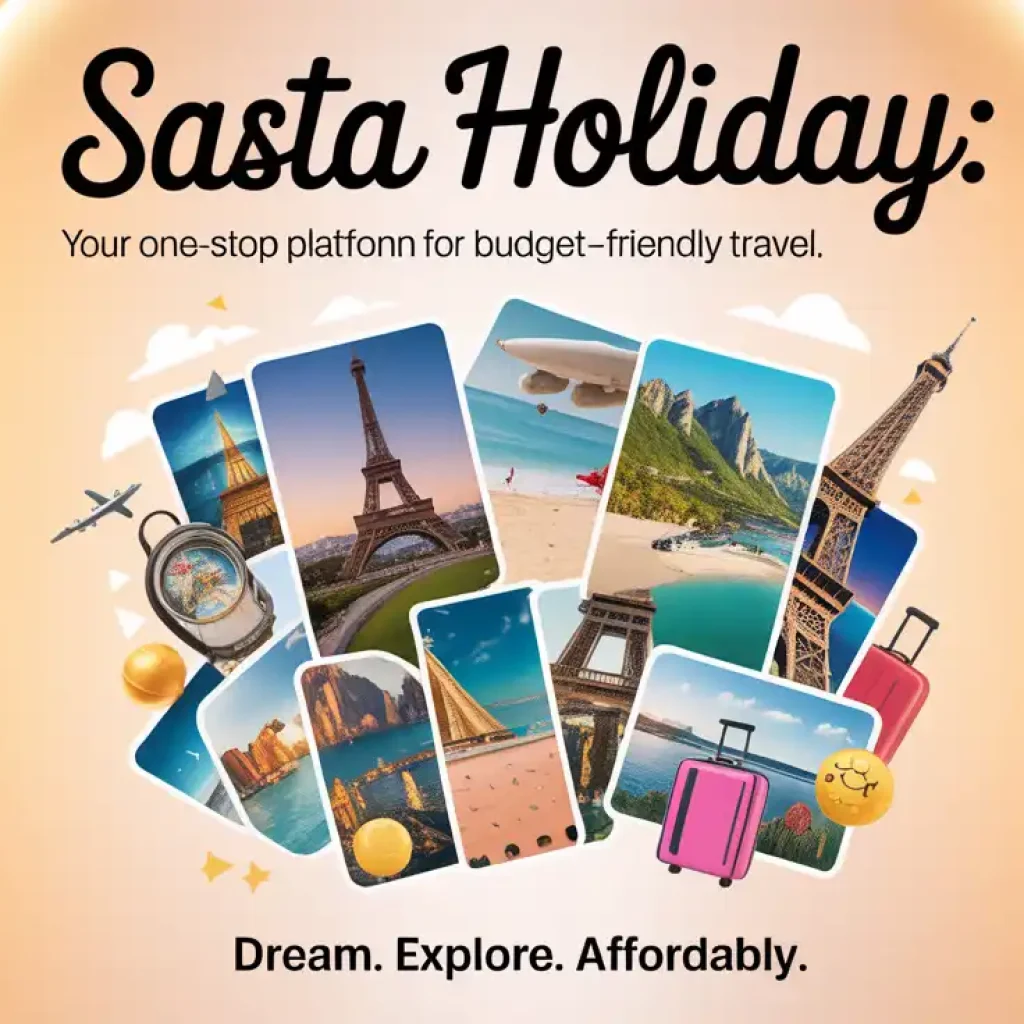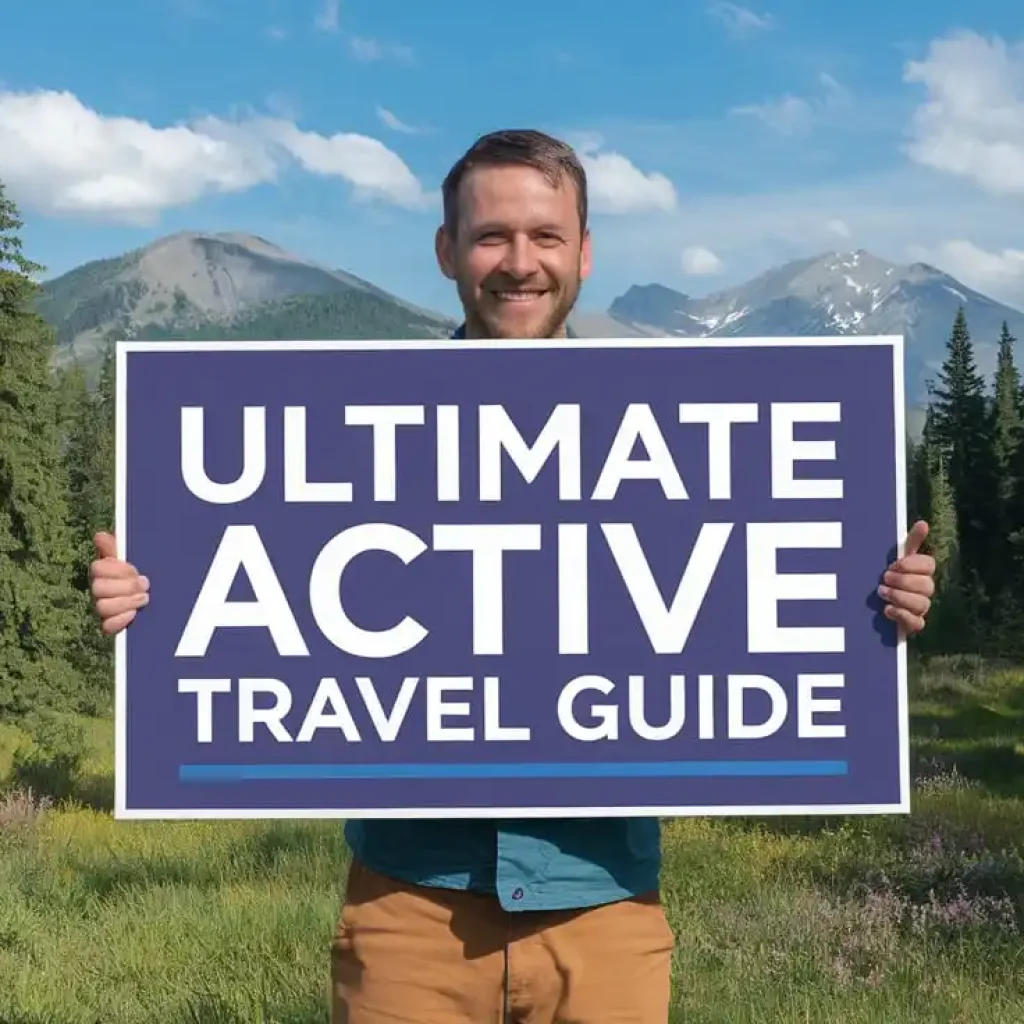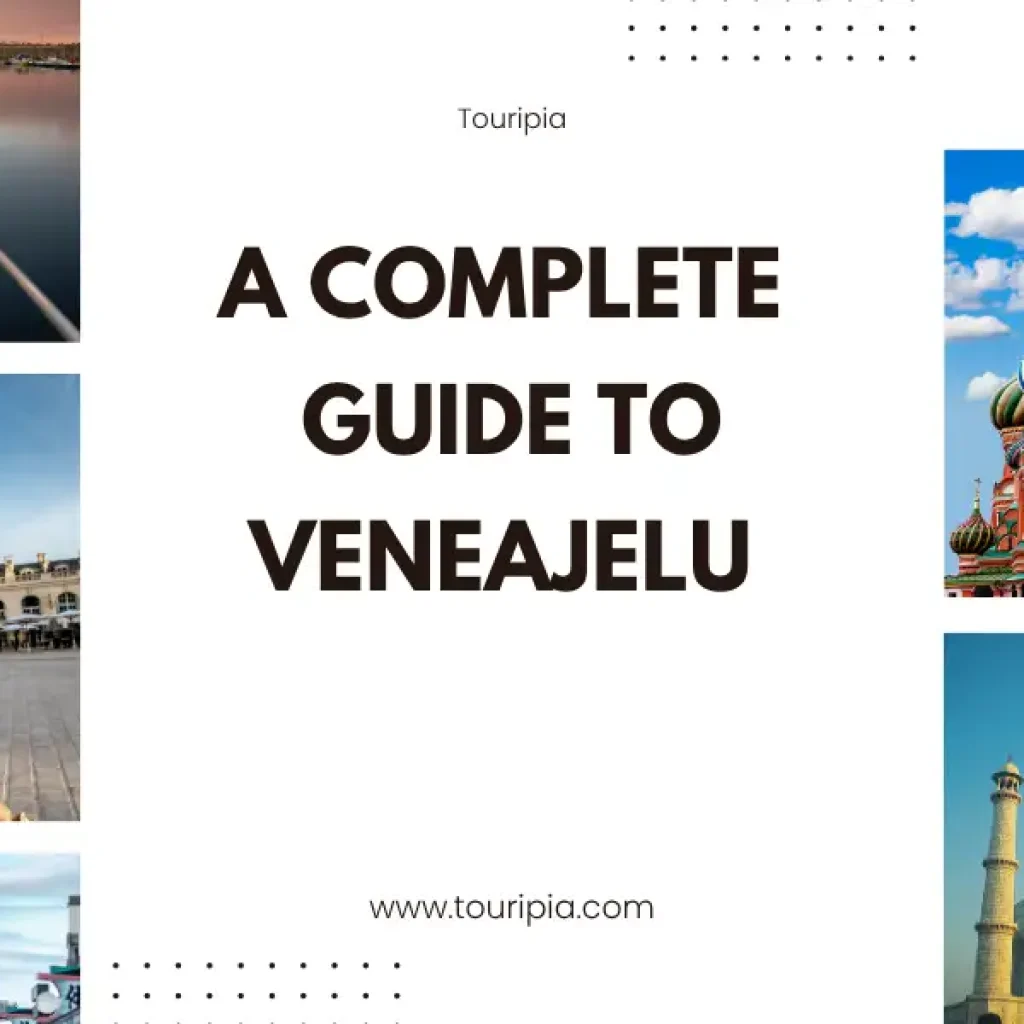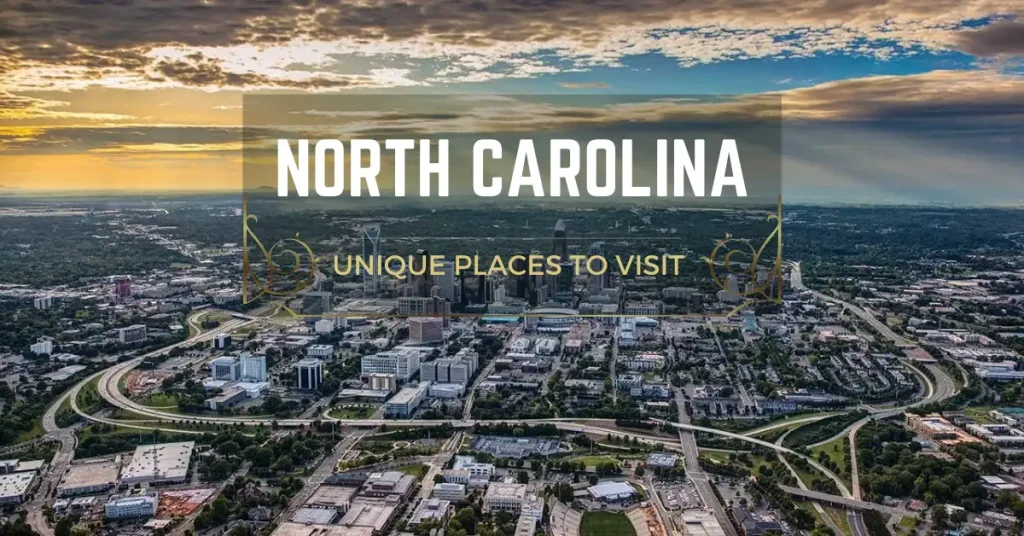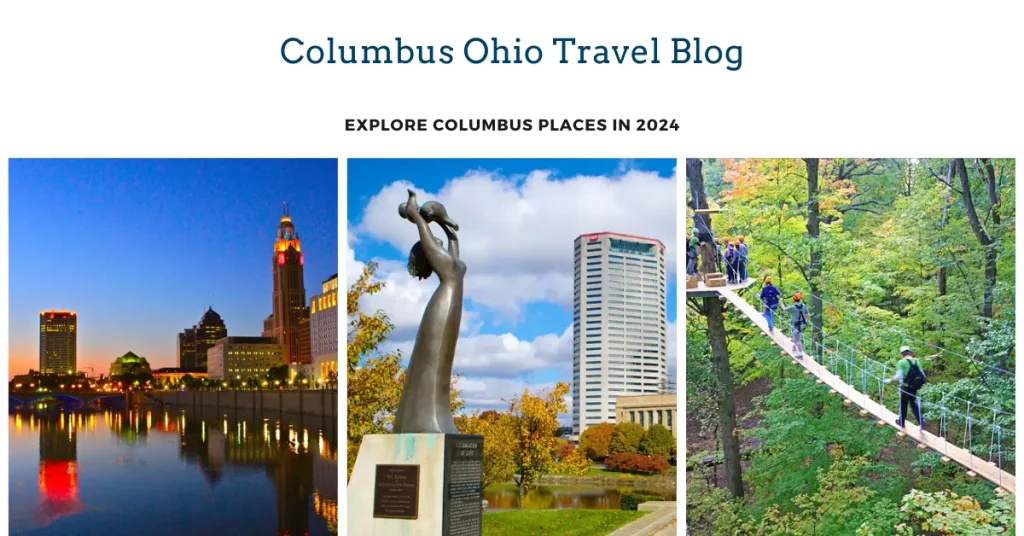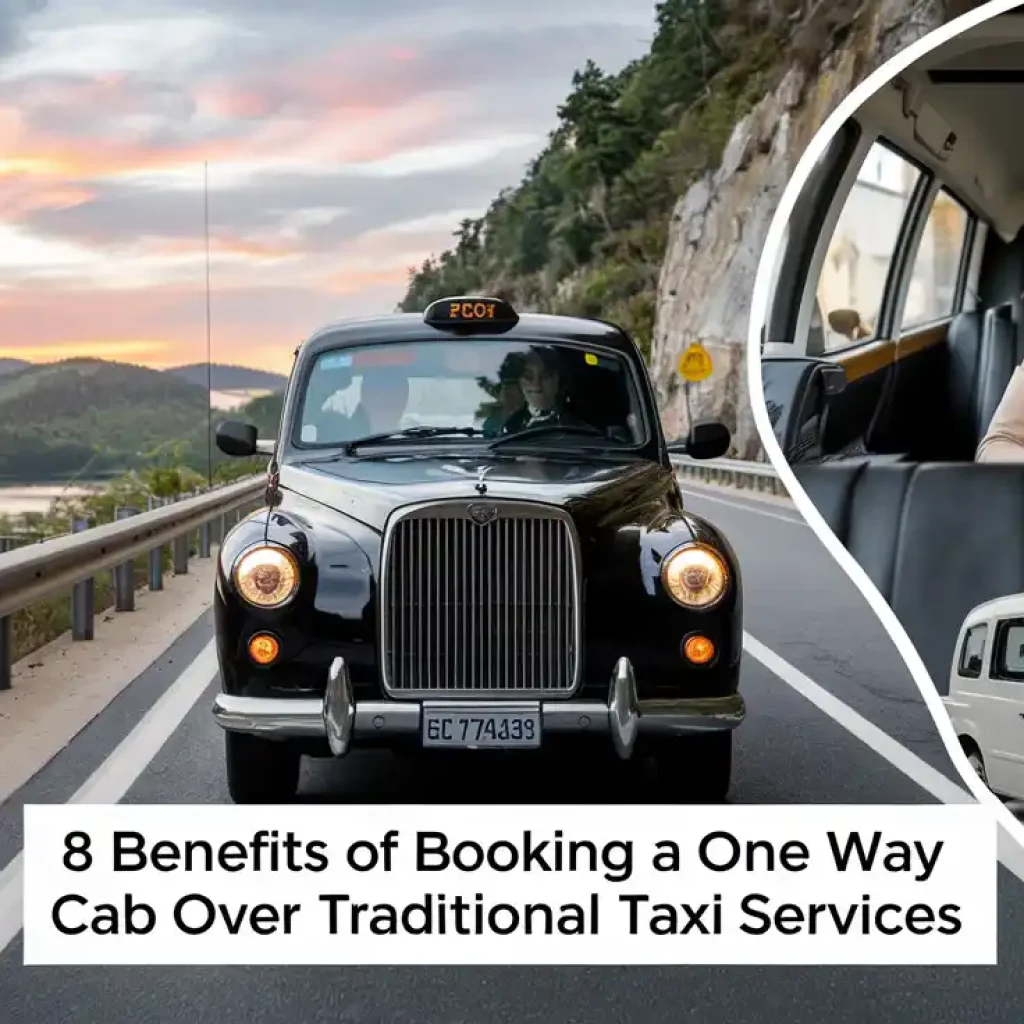How to Become a Travel Agent Without Experience?

Becoming a travel agent without experience is completely possible today. The industry has opened up to beginners because most tools, trainings, and booking systems are now available online. You no longer need years in tourism or a background in sales to get started. Strong communication skills, curiosity, and a willingness to learn are enough to begin.
The field is beginner friendly for three reasons. First, host agencies and travel franchises give new agents full support, training, and access to booking platforms. Second, many suppliers offer free courses that teach what you need to know. Third, you can build experience on your own by creating sample itineraries or planning trips for friends.
In this guide, you will learn what a travel agent does, how to build the right skills, how to train for the role, and how to break into the industry even if you have never worked in travel. You will also see how to join a host agency, create your online presence, and choose a niche that helps you stand out.
What Does a Travel Agent Do?

A travel agent plans trips for clients and manages every step of the travel process. The job includes researching destinations, comparing prices, booking flights and hotels, and handling any changes or issues that come up. Agents also recommend activities, travel insurance, and upgrades that match the client’s budget.
Daily work requires several key skills. You need clear communication to understand what the client wants. You need organization to manage dates, bookings, and itineraries. You also need problem solving to handle delays, cancellations, or last minute changes. Basic sales skills help when you suggest better options or added services.
Beginners fit well into this role because most of the required skills come from everyday life or past jobs. If you can talk to people, manage simple tasks, and research information online, you already have the foundation. Training fills in the travel specific knowledge, and host agencies give you access to tools that used to be hard to get.
Can You Become a Travel Agent With No Experience?
Yes, you can become a travel agent with no experience. The industry has changed and now supports newcomers through online courses, supplier training, and beginner friendly programs run by host agencies.
Modern training makes it simple to learn the basics from home. Host agencies give you booking access, step by step guidance, and ready made systems. Online tools help you organize itineraries, track clients, and compare prices without needing deep industry knowledge at the start.
Many people believe you need a tourism degree, years of travel, or sales experience before you can begin. None of that is required. What matters is your ability to learn, stay organized, and help clients choose the right trip. With the right structure and support, beginners can start taking clients much sooner than they expect.
Step 1: Build the Essential Transferable Skills
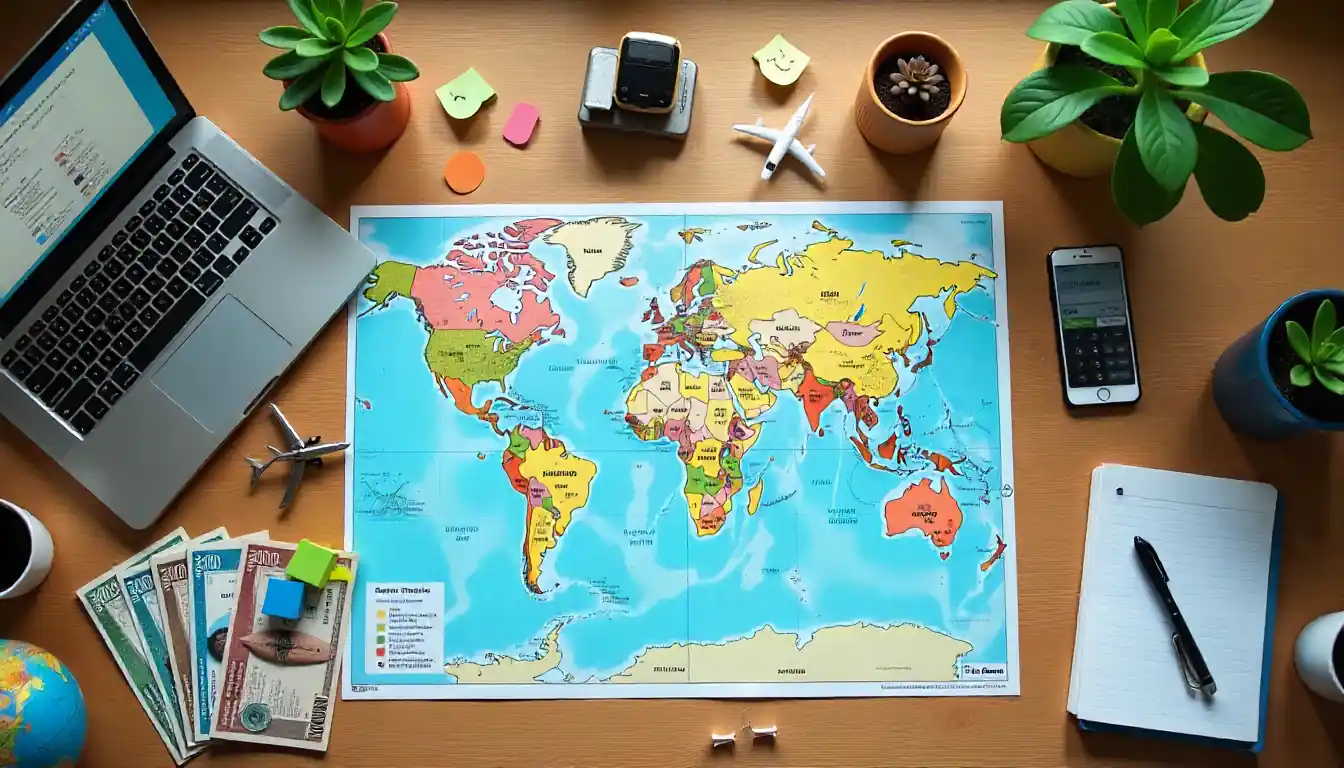
You can start building the skills needed for this career long before you take your first client. These skills come from everyday tasks and basic customer interactions.
✔️ Communication
You need to explain travel options clearly, ask the right questions, and listen carefully to each client. Strong communication also helps you handle issues calmly when plans change. You can practice by writing short travel summaries, joining online travel groups, or helping friends plan simple trips.
✔️ Research
A big part of the job involves comparing flights, hotels, tours, and destinations. You must know where to look and how to select options that fit a client’s budget. You can practice by researching real routes, checking hotel reviews, or comparing travel packages for fun. Treat it like training for your future clients.
✔️ Organization
Travel planning involves dates, booking confirmations, invoices, and follow ups. You need a system that keeps everything easy to find. Practice by planning personal trips in a spreadsheet, using calendar tools, or organizing sample itineraries with clear steps.
✔️ Sales or client-handling
Sales in travel is more about guiding people toward better choices rather than pushing products. You need patience, confidence, and a service mindset. You can practice with simple tasks like helping someone pick the best hotel, explaining why one flight is better than another, or creating small upgrades in your sample itineraries.
How to practice these without a job
You can gain real practice by planning mock itineraries for different destinations. Try comparing flight prices for three airlines, or create a two day plan for a nearby city. Offer to plan a weekend trip for a friend. Small exercises build habits that will help you later.
Examples of beginner-friendly tasks
- Build a five day itinerary for a place you have never visited
- Compare three hotel options and explain your choice
- Create a travel budget for a couple’s short trip
- Write a simple travel guide for one destination
- Practice answering common client questions using information from travel websites
These simple tasks strengthen the exact skills you will use as a travel agent.
Step 2: Get Basic Training and Optional Certifications
Training is useful even though it is not required. It helps you learn travel terms, booking rules, and the structure of the industry. Clients also trust you more when you show professional certification, even at a beginner level.
✔️ Why training helps
It shortens your learning curve and gives you confidence when dealing with clients or suppliers. Training also teaches you how flights, hotels, and tours are priced. This knowledge helps you plan better and avoid mistakes.
Key certifications
CTA and CTC from The Travel Institute
These programs teach travel fundamentals, customer service, and itinerary building. CTA is ideal for beginners. CTC is for later advanced learning.
IATA training
IATA offers global travel and tourism courses. Their programs help you understand international booking rules, airline systems, and ticketing standards. These are respected worldwide.
ASTA courses
ASTA offers practical courses on travel sales, consumer protection rules, and industry ethics. Their training is straightforward and helpful for new agents.
Budget-friendly options
Coursera, Udemy, and Alison offer low cost or free courses on travel planning, tourism basics, and customer service. These help you build a foundation before moving to formal certifications.
Best certifications for beginners
Start with CTA or an IATA beginner course. Both provide clear structure and recognized credentials. If your budget is limited, choose a free course from Alison or Udemy and then upgrade when you have more confidence.
Step 3: Learn the Technical Side of the Industry
Travel agents depend on several tools to search prices, manage bookings, and organize clients. You do not need to master everything at once, but you should know the basics.
✔️ Booking systems: Amadeus and Sabre
These systems show real time flight availability, fare rules, seat maps, and ticket options. Many travel agents use them daily. You can find free introductory videos online that explain how they work. Some host agencies also offer beginner lessons.
✔️ CRM tools like HubSpot
A CRM helps you track leads, manage client profiles, store travel preferences, and schedule follow ups. HubSpot offers free tools that you can practice with. Learning how a CRM works will make your workflow smoother once you start taking clients.
✔️ Supplier training
Airlines, hotel chains, cruise lines, and tour operators offer free training modules. These teach you how to book their services, understand their policies, and earn commissions. You can find these programs on supplier websites under training or agent resources.
Free online entry points
- YouTube tutorials for basic Amadeus and Sabre navigation
- HubSpot free CRM training
- Supplier portals like Marriott, Hilton, Delta, and Royal Caribbean training pages
- Free intro courses from Alison or EdApp
Learning these tools early makes you more confident and helps you speak the same language as industry professionals.
Step 4: Gain Experience Through Internships or Practice Projects

You can gain practical experience even without a formal job in the industry. Travel agencies often offer beginner friendly training opportunities, and you can build a strong portfolio through simple practice work.
✔️ Apprenticeships or internships at travel agencies
Many agencies provide short apprenticeships or internships that teach basic booking processes, customer communication, and itinerary planning. These roles usually focus on hands-on learning rather than strict job requirements. You might help with research, build sample trips, or support senior agents. Even a few weeks of experience boosts your confidence and helps you understand the workflow.
✔️ Remote internship availability
Remote travel internships have become common. They allow you to learn from home while supporting tasks like itinerary research, data entry, and supplier communication. These programs are helpful for beginners with limited availability or those testing whether this career is right for them.
✔️ Building a portfolio by planning trips for friends or family
One of the easiest ways to show your skills is to plan real trips for people you know. Help someone choose flights, compare hotels, or build a custom itinerary. Save each project in a folder with notes, confirmations, and screenshots. This simple portfolio proves you can handle real client needs.
✔️ Creating sample itineraries to show skills
You can also create your own sample itineraries to practice. Choose a destination, set a budget, and plan a full trip with day-by-day activities. These samples show your planning style, research ability, and understanding of travel logistics. New agents often use three to five sample itineraries when pitching clients or applying to host agencies.
Step 5: Join a Host Agency or Travel Franchise

Joining a host agency is one of the most effective ways to start as a travel agent without experience. It gives you access to systems, training, and support that would otherwise be expensive or hard to obtain.
What a host agency is
A host agency is a company that allows independent travel agents to work under its umbrella. They provide booking access, training, marketing tools, and supplier relationships. You operate independently while using their resources.
How commissions and support systems work
You earn commissions from bookings, and the host agency takes a small percentage. In exchange, you receive access to booking platforms, back-end support, and supplier discounts. Some host agencies offer coaching, community groups, and marketing templates.
Why this is the fastest path for beginners
Host agencies remove the barriers that used to make travel work difficult for newcomers. You get everything you need on day one, including training, booking systems, and supplier connections. You can start working with clients much faster than building everything on your own.
Examples
- Fora Travel offers modern tools, strong training modules, and community support.
- Dream Vacations Franchise provides structured training and a full business framework.
- Main Street Agency Travel focuses on free online training and simple onboarding.
Pros and cons of host agencies vs franchises
Host Agencies
Pros: low startup cost, quick onboarding, flexible work style, strong training
Cons: lower control over branding, commission split applies
Franchises
Pros: full business structure, strong brand recognition, consistent tools
Cons: higher startup cost, more rules, less independence
Step 6: Build Your Online Presence and Network
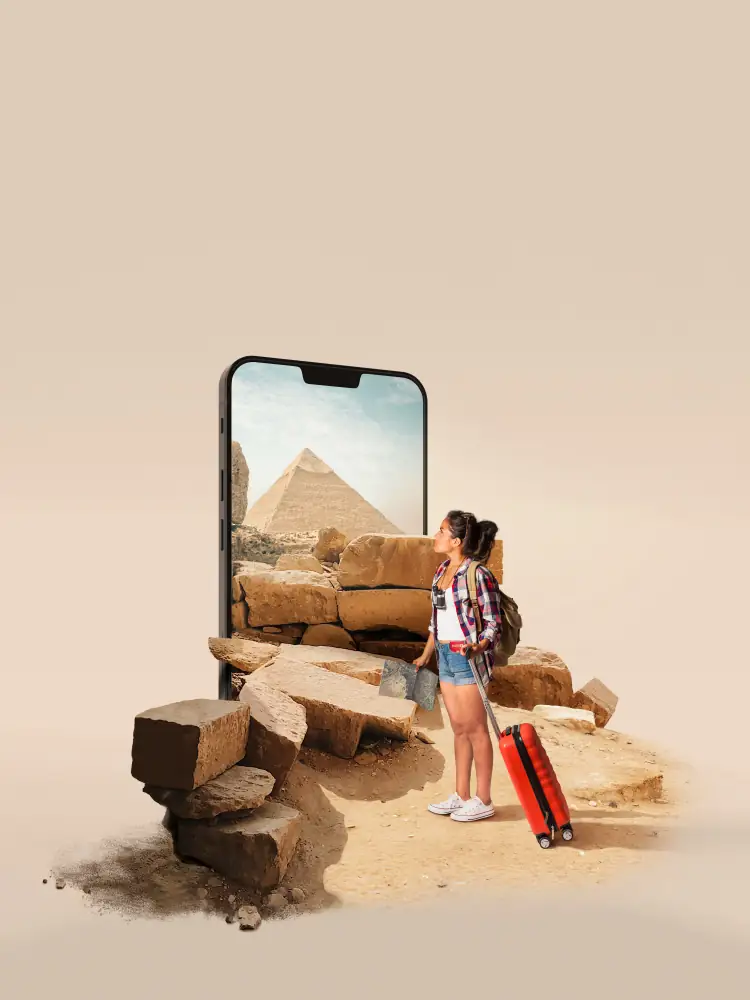
A strong online presence helps clients trust you and makes it easier for people to discover your services. You can start small and grow as you gain confidence.
✔️ Social media strategy for beginners
Pick one or two platforms such as Instagram or TikTok. Share simple posts like destination tips, hotel comparisons, or short itineraries. Use clear images and short captions. You do not need to be perfect. Consistency matters more than complexity.
✔️ Creating a simple landing page or blog
A basic page helps potential clients contact you. It can include your name, a short introduction, your specialties, and ways to book a consultation. You can build it with simple tools like Wix or WordPress. Add a few sample itineraries to show your style.
✔️ Sharing itineraries, destination tips, or client stories
Posting small pieces of helpful content builds trust. Share trip breakdowns, packing tips, or photos from recent client trips. These posts show your knowledge and help you attract your first clients.
Joining communities
- ASTA offers networking, events, and training resources that connect you with professionals.
- LinkedIn travel groups help you stay updated and meet other agents or suppliers.
Why networking accelerates career growth
Networking exposes you to new opportunities, supplier deals, and potential partnerships. You learn faster when you interact with experienced agents and stay active in industry groups. Connections often lead to client referrals, better training, and useful support when you need answers.
Step 7: Apply for Entry-Level Travel Jobs
You can begin working in the travel industry even without formal experience. Many agencies hire beginners who have strong communication skills and a willingness to learn.
Types of beginner-friendly roles
Several positions fit new applicants:
- Junior travel consultant
- Customer support assistant for an agency
- Reservation agent for airlines or hotels
- Administrative assistant in a travel office
- Sales support representative for tour companies
Each role exposes you to real client needs, booking processes, and supplier systems.
What skills to highlight on your CV
Focus on skills that transfer directly to travel work. These include communication, attention to detail, customer service, organization, and research. Show that you can handle multiple tasks, respond calmly to problems, and support customers. Mention any travel planning you have done, even for personal trips.
How to show value without experience
Highlight small achievements. Add sample itineraries, volunteer planning work, or training certificates. Show that you understand travel tools or have completed free introductory courses. Recruiters look for reliability, clarity, and interest in the field, not perfect experience.
Remote job possibilities
Many agencies hire remote reservation agents, customer service staff, and junior consultants. Remote positions are ideal if you want flexibility while learning. You can manage bookings, answer client questions, and support senior agents from home.
Step 8: Choose Your Travel Niche
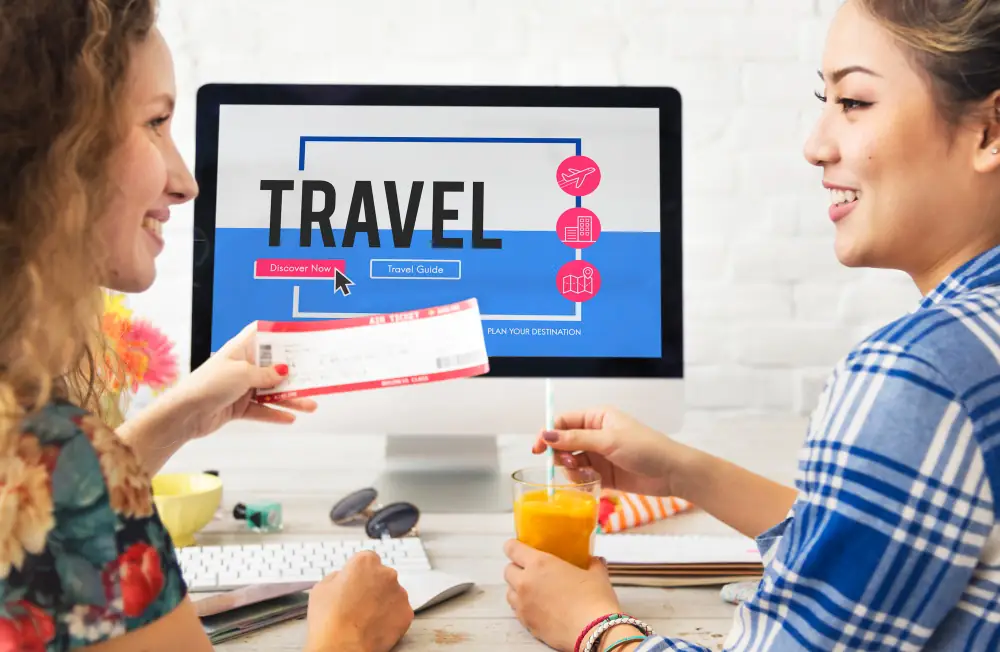
Choosing a niche helps you stand out early. You build expertise faster, attract specific clients, and create a clear identity in the market.
Why specialization helps you grow faster
Clients trust specialists because they expect deeper knowledge and better recommendations. Specialization also simplifies your marketing since you focus on one type of travel instead of everything at once.
Popular niches
- Destination weddings. These trips require careful planning and are high value.
- Cruises. Many cruise lines offer generous commissions and strong training.
- Eco-tourism. Ideal if you support sustainable travel.
- Corporate travel. Focused on efficiency and repeat clients.
- Family travel. Helps parents plan smooth trips with children.
How to pick the niche that fits your strengths
Think about your interests, travel style, and communication strengths. If you enjoy detailed planning, wedding travel might fit you. If you like structure and business interactions, corporate travel is suitable. Choose a niche that feels natural and motivates you to learn more.
Useful Resources for Complete Beginners
Below is a simple, beginner friendly list of resources you can use to learn, train, or join the industry.
Training platforms
- Alison
- EdApp
- Coursera
- Udemy
- Tourism School free courses
Certification bodies
- The Travel Institute
- IATA
- ASTA
Host agencies
- Fora Travel
- Dream Vacations Franchise
- Main Street Agency Travel
Professional networks
- ASTA
- LinkedIn travel groups
Supplier training lists
- Marriott Hotel training
- Hilton travel advisor program
- Delta Airlines agent training
- Royal Caribbean agent courses
- Major tour operator training portals
Practical Tips for Starting With Zero Experience
You can begin your travel career right now with a few simple steps. These actions build confidence and help you grow even if you are starting from scratch.
✔️ Start sharing content early
Post short travel tips, destination lists, or itinerary ideas on social media. You can share simple posts about places you like or routes you have researched. This builds trust and shows others that you know how to plan trips.
✔️ Build a simple brand identity
Use a clear name, one color theme, and a short description of what you offer. You do not need a full website to start. Even a clean profile on Instagram or Facebook can help clients find you.
✔️ Use free online education
Take advantage of free courses from Alison, EdApp, or supplier training programs. These lessons teach you how bookings work, how to compare prices, and how to talk to clients.
✔️ Don’t wait for a full-time job to start learning
You can practice travel planning on your own. Build itineraries, compare flights, or create a sample budget for a trip. Every small task develops your skills and prepares you for real clients.
✔️ Leverage host agencies for fast onboarding
Host agencies give you tools, training, and support from day one. They let you start working much sooner than building everything on your own. Many beginners use this route to get their first clients within weeks.
Conclusion
Becoming a travel agent without experience is completely within reach. You can build skills, learn the tools, and find support through training programs and host agencies. Each step you take, from practicing itineraries to joining a community, moves you closer to working with real clients.
Start small, stay consistent, and keep learning. Your interest in travel and your ability to help people plan better trips will shape your success more than any formal background. With patience and steady effort, you can grow into a confident and capable travel agent.
Frequently Asked Questions
1. Do I need a degree?
No. Most travel agents begin without a degree. Skills and training matter more than formal education.
2. How long does it take to get started?
You can start learning within days. With a host agency or basic training, you can begin taking clients within a few weeks.
3. How much can beginners earn?
Income varies based on bookings and effort. Beginners often start part time. Earnings grow as you build your client base and gain confidence.
4. Do travel agents still make money in 2025?
Yes. Many people prefer expert help for complex trips, cruises, and group travel. Commissions from suppliers remain strong.
5. Is working from home realistic?
Yes. Most modern travel agents work from home using online tools and mobile communication. Remote work is now a standard option.





